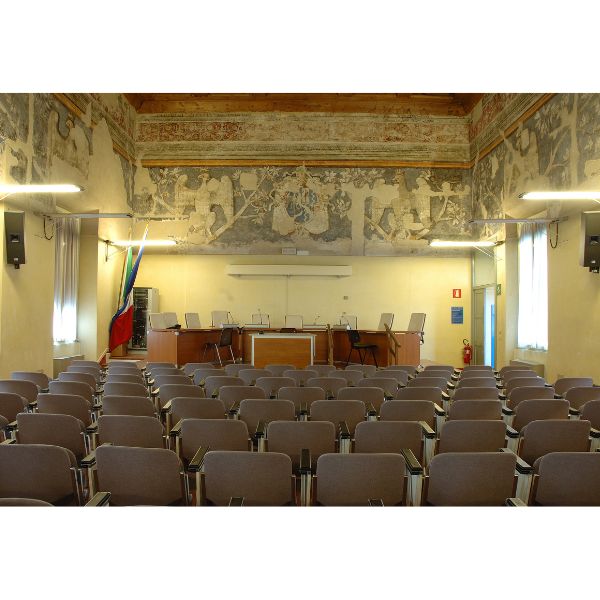Inaugural conference of the project ‘Digital Vulnerability in European Private Law’ (DiVE), funded by the Italian Ministry of University and Research from June 2022 to May 2025.
The DiVE project aims to investigate the notion of digital vulnerability by exploring how this notion stands vis-à-vis traditional paradigms of protection of weaker parties (such as rules on incapacity, consumer protection, data protection, anti-discrimination, equality before the law) and to what extent it might properly capture risks and harms stemming from digital technologies.
The event will focus on the current and future legal status of the concept of digital vulnerability – that is, vulnerability caused by digital technologies – under domestic and EU law, analyzing both how the notion is currently used in European legal terminology and how rules and remedies are currently triggered by unequal situations in the digital environment.
Participation in the conference is free of charge. Should you wish to attend, please register by 1 June 2023 at digital.vulnerability@gmail.com
Abstract
Vulnerability has emerged in legal discourse, in dialogue with other disciplines, as a useful concept to capture the fluid and multilayered nature of the human condition and to question the adequacy of some foundational legal and policy norms.
Yet, despite the potential of the notion of vulnerability as a key tool to overcome the limits of legal formalism and paternalism and to foster substantive equality, the legal status and effects of the notion under domestic and European laws are still quite unclear. In particular, the notion of people’s vulnerability has only seldom been applied to the specific forms of exposure to harm that might arise from interaction with digital technologies.
In our current and pervasively digitalized world, we believe it is increasingly important to analyze how digital technologies impact preexisting forms of vulnerability or create new ones, and to understand how the law can prevent or address unequal experiences of technology. This is what we plan to do with our project ‘Digital Vulnerability in European Private Law’ (DiVE), funded by the Italian Ministry of University and Research from June 2022 to May 2025. The DiVE project aims to investigate the notion of digital vulnerability by exploring how this notion stands vis-à-vis traditional paradigms of protection of weaker parties (such as rules on incapacity, consumer protection, data protection, anti-discrimination, equality before the law) and to what extent it might properly capture risks and harms stemming from digital technologies.
The project aims in particular at identifying the factual conditions in which digital technologies – from the web to social media, from platforms to Artificial Intelligence and Distributed Ledger Technologies – might prove disruptive and challenging for people, and in assessing under which conditions, how and to what extent the notion of digital vulnerability might be translated into claims for special legal protection.
Within the outlined framework, three international conferences will be organized. A first conference will be held on 15 and 16 June 2023 at the Law Faculty of the University of Ferrara, to inquiry the very boundaries of the notion of digital vulnerability. A second conference will be held in March 2024 in Rome, to examine how digital vulnerability matters in access to, identity construction and protection of health in the digital sphere. A third conference will be held in March 2025 in Trieste, to scrutinize the impact of digital vulnerability on contractual and tortious remedies.
The Project’s inaugural conference will focus on the current and future legal status of the concept of digital vulnerability – that is, vulnerability caused by digital technologies – under domestic and EU law, analyzing both how the notion is currently used in European legal terminology and how rules and remedies are currently triggered by unequal situations in the digital environment.
In particular, the aim of the conference is to explore the links between the general notion of vulnerability and that of digital vulnerability, and to analyze how technology might exacerbate existing forms of inequality or create new ones.
Against this background, the inaugural conference aims to serve as a platform for offering a critical and innovative look at how the multifaceted concept of digital vulnerability stands vis-à-vis traditional paradigms of protection of weaker parties (such as rules on equality before the law, antidiscrimination, incapacity, consumer protection, data protection) and to what extent it might properly promote a ‘personalized’, human-centered, approach to the digital environment.
Research Project Team: Claudia Amodio, Camilla Crea, Alberto De Franceschi, Amalia Diurni, Marta Infantino, Luca Ettore Perriello, Loredana Tullio
Scientific Committee: Danielle K. Citron (University of Virginia), Hans-Wolfgang Micklitz (European University Institute), Frank Pasquale (Brooklyn Law School), Teresa Rodríguez de las Heras Ballell (University Carlos III of Madrid), Giovanni Sartor (European University Institute), Reiner Schulze (University of Münster), Gunther Teubner (Frankfurt University), Yingqin Zheng (University of London).



